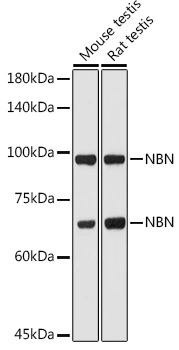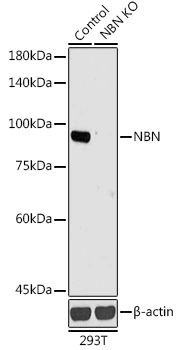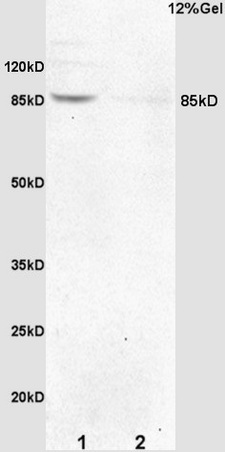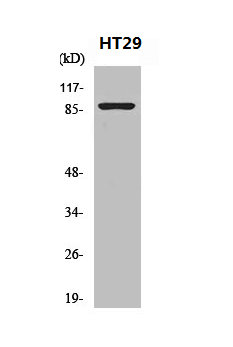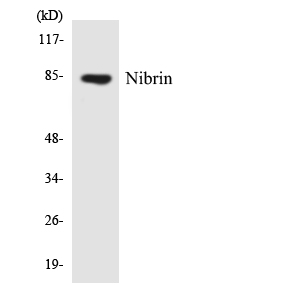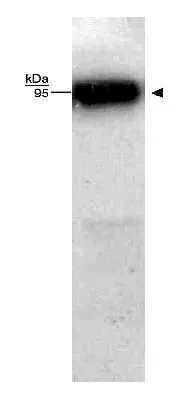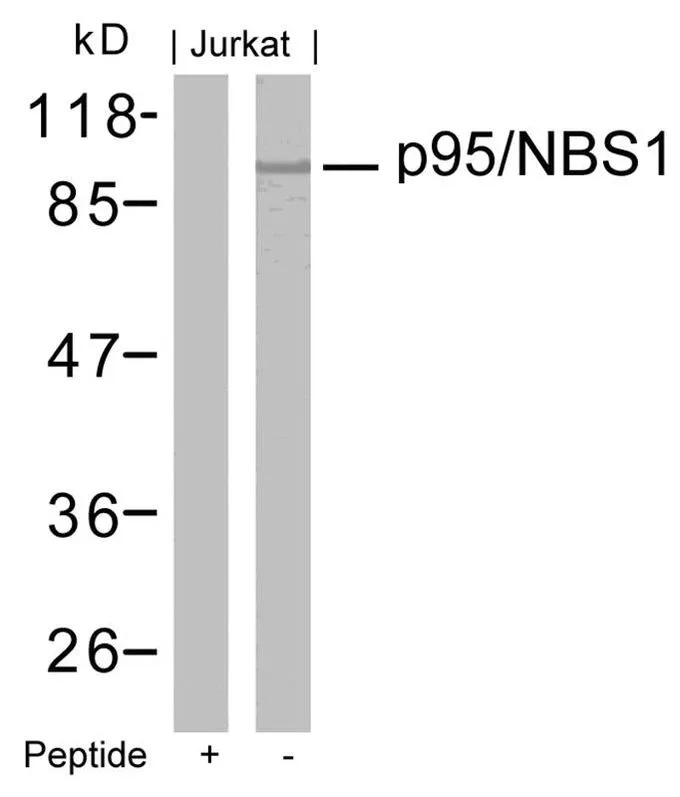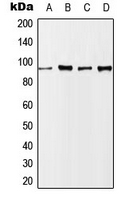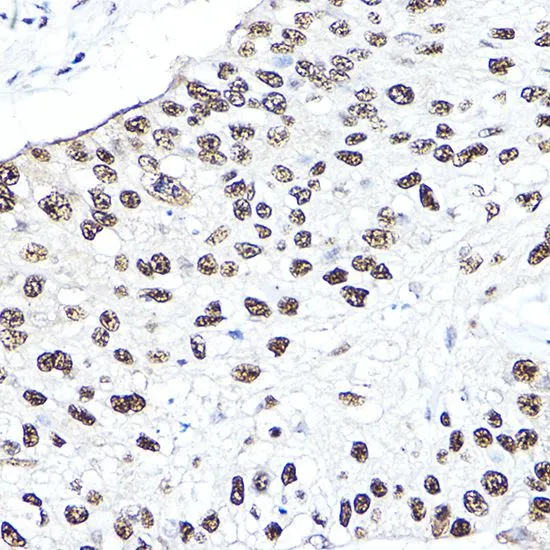
IHC-P analysis of human lung cancer tissue using GTX35197 NBS1 antibody. Dilution : 1:50
NBS1 antibody
GTX35197
ApplicationsWestern Blot, ImmunoHistoChemistry, ImmunoHistoChemistry Paraffin
Product group Antibodies
ReactivityHuman, Mouse, Rat
TargetNBN
Overview
- SupplierGeneTex
- Product NameNBS1 antibody
- Delivery Days Customer9
- Application Supplier NoteWB: 1:500 - 1:1000. IHC-P: 1:50 - 1:100. *Optimal dilutions/concentrations should be determined by the researcher.Not tested in other applications.
- ApplicationsWestern Blot, ImmunoHistoChemistry, ImmunoHistoChemistry Paraffin
- CertificationResearch Use Only
- ClonalityPolyclonal
- ConjugateUnconjugated
- Gene ID4683
- Target nameNBN
- Target descriptionnibrin
- Target synonymsAT-V1, AT-V2, ATV, NBS, NBS1, P95, hNbs1, nibrin, Nijmegen breakage syndrome 1 (nibrin), cell cycle regulatory protein p95, p95 protein of the MRE11/RAD50 complex
- HostRabbit
- IsotypeIgG
- Protein IDO60934
- Protein NameNibrin
- Scientific DescriptionMutations in this gene are associated with Nijmegen breakage syndrome, an autosomal recessive chromosomal instability syndrome characterized by microcephaly, growth retardation, immunodeficiency, and cancer predisposition. The encoded protein is a member of the MRE11/RAD50 double-strand break repair complex which consists of 5 proteins. This gene product is thought to be involved in DNA double-strand break repair and DNA damage-induced checkpoint activation. [provided by RefSeq, Jul 2008]
- ReactivityHuman, Mouse, Rat
- Storage Instruction-20°C or -80°C,2°C to 8°C
- UNSPSC12352203

